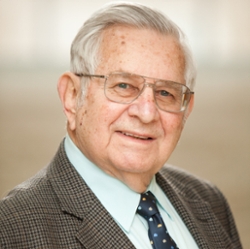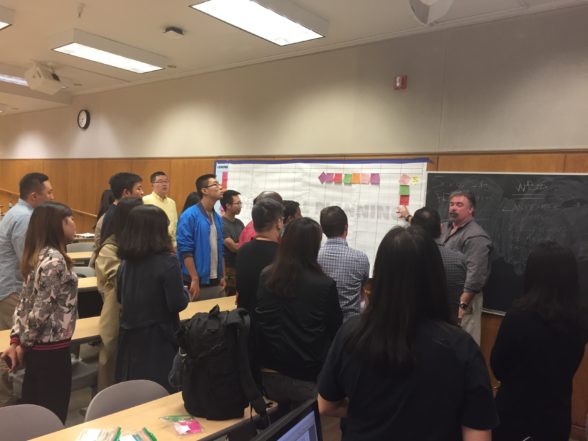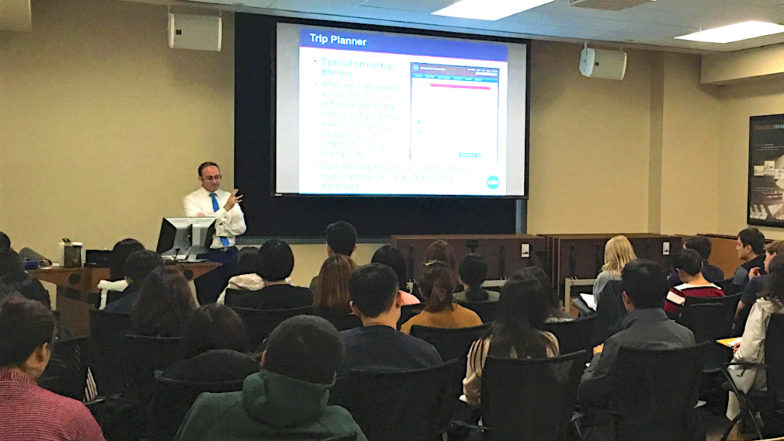Because both recognize the value of uniting industry and academia to advance the construction industry, it was only a matter of time before Evanston, IL-based Northwestern University’s McCormick School of Engineering and Applied Science affiliated itself with BuiltWorlds as an Associate Partner — and a very active partner at that.
For more on Northwestern’s new partnership with BuiltWorlds, click here.
At present, McCormick’s Master of Science in Project Management (MPM) and Executive Management for Design and Construction (EMDC) programs are involved in sponsoring four BuiltWorlds events, including:
- Future Workforce (Dec. 6)
- Machines (May 3)
- Projects: Chicago (June 28)
- Buildings 2.0 (July 26)

MPM and EMDC, both developed by Raymond J. Krizek, Stanley F. Pepper Professor of Civil and Environmental Engineering at McCormick, are well suited to these events, given that the two programs place particular emphasis on practical experience. In fact, both require enrollees to spend time in the workplace as a condition of acceptance.
Enrollment in the one-year (full-time) or two-year (part-time) MPM program, launched by Krizek in 1994 to combine the essential concepts of civil and architectural engineering design with the functional concepts of business management and behavioral science, requires a year’s experience in the workforce. “My thinking was to get students out in the real world for a year or so — let them kick around a bit, whether in their chosen field of construction or some other endeavor,” said Krizek, who serves as the MPM’s program director.
When first conceived in the early 1980s, about a decade prior to its launch, many industry members believed the MPM program wasn’t needed. “They told me, ‘We want to hire new graduates and mold them to our way of doing things,’” Krizek recalled.

A decade later the naysayers were proven wrong. Today, MPM offers 32 courses encompassing five specializations, including AEC business management, construction management, real estate development, sustainability, and transportation management. For real world perspective, the program draws on an adjunct faculty of more than 40 practicing professionals, most of whom have more than 20 years of experience in design and construction.
The more recent launch of EMDC occurred by happenstance. In 2011, Krizek assembled a committee of eight industry practitioners to evaluate the MPM program and suggest actions for improving it. Their feedback was illuminating.
“They thought the MPM program was fine as offered, but asked, ‘Have you given thought to developing an executive management program that extends beyond project management and grooms industry professionals for advancement to executive level positions?’” Krizek said.
EMDC, launched in 2012 with Krizek as program director, requires eight or more years of progressive industry experience as a condition for acceptance and offers enrollees the option of a certificate upon completion of six core courses, or a master’s degree by completing an additional six elective courses. Students typically can achieve a degree in two years of part-time study, with core courses including Finance and Accounting for Executives, Leadership and Organization, Construction Law and Risk Management, Advanced Business Strategy, Communication and Negotiation, and Human Resource Management.

During the first few years, two core courses were taught each quarter in a traditional classroom setting from 9 to 12 a.m. and 1 to 4 p.m. on Friday and Saturday of every other week.
Motivated by the program’s success and concern of students about missing one Friday of work every two weeks, EMDC recently elected to adapt the program for online presentation, with an initial offering of core courses launched in the winter 2016 quarter. The online approach adopted for each of a course’s ten classes consists of a 75-minute recorded video prepared by the instructor for remote viewing, followed by a weekly 90-minute interactive evening webinar involving both faculty and students to delve deeper into concepts presented in the video.
The videos typically end with suggested talking points or questions, such as ‘how would you resolve a particular crisis?’ in anticipation of webinar discussions that follow. Webinars also frequently include critiques of assignments, group projects, guest seminars by industry leaders, and student presentations.

Interaction during webinars is intended to promote relationships between students and faculty similar to those in face-to-face courses. A second goal is to extend relationships upon graduation to create a mutually supportive long-term professional network.
Since migrating online, EMDC has attracted students from as far away as Qatar. Currently, students can complete the EMDC degree online with a combination of EMDC elective courses or approved on-campus MPM courses, online Northwestern School of Professional Studies courses, and online courses from other universities. However, the program is currently developing a series of online electives that complement core courses at a rate of two new electives per quarter, with a goal of offering 12-18 courses that will allow students to select only EMDC electives to complete their degree if they prefer.
EMDC introduced its first two online electives — Information Systems in Construction and Facilities Management — in the 2017 fall quarter, with an additional two, Design Management and Systems Thinking for Sustainable Design, planned to launch for the winter quarter.
“We’re still very young and growing,” Krizek said. “We’ve really only begun to focus on the program’s potential to promote growth and advancement among construction professionals.”

Discussion
Be the first to leave a comment.
You must be a member of the BuiltWorlds community to join the discussion.